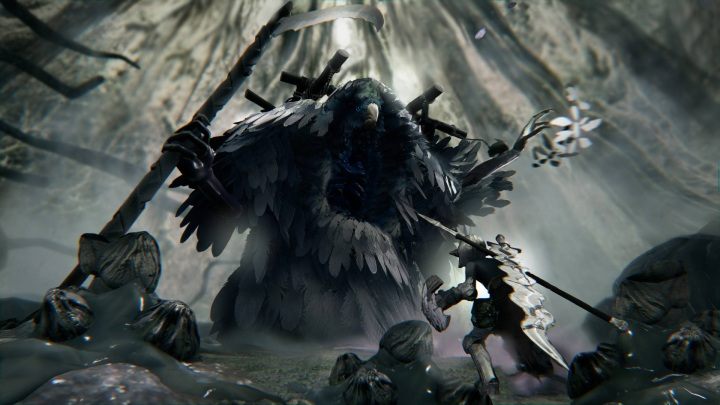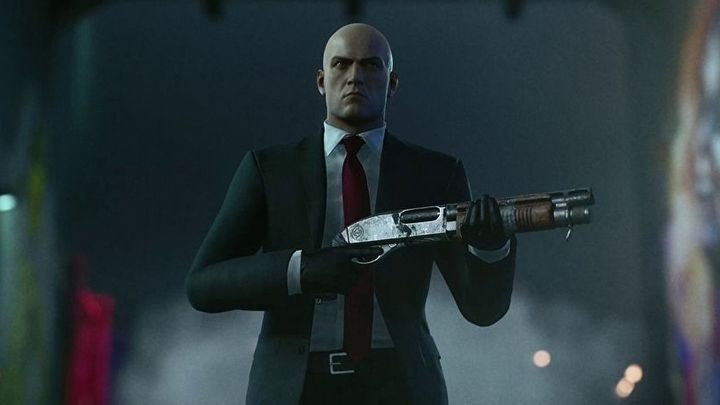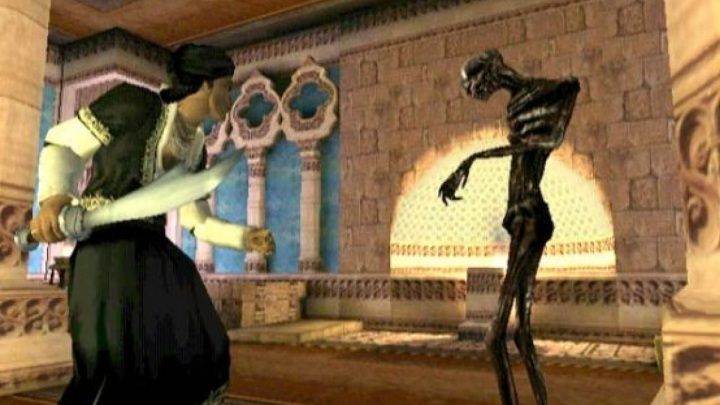author: Paul Wozniak
NieR: Automata – the ultimate sacrifice. 8 difficult games with original mechanics
Table of Contents

NieR: Automata is famous for having up to 26 different endings – one for each letter of the Latin alphabet. To get to know the full story, you need to explore the first five scenarios; the rest are various easter eggs that aren't really full-blown endings. As part of the final canonical ending (marked 'E'), the player faces off a horde of enemies in a unique mini-game that resembles a classic shoot-em-up game.
The standoff is by no means easy, but after a few failures and some rather peculiar questions, the game extends a helping hand. If we agree to accept it, we receive support from other players who have already completed the game, which naturally makes the fight much easier. After winning the game and watching the cut-scene, we will be asked if we want to sacrifice all our progress (all saves, items or quests) to help other players in the future.
Help in the very same battle, of course. If we accept the offer, we make sure that others will get help from us. The stakes are high, however, because in order to learn all the remaining endings, we will have to repeat some of the accomplishments over again. Are you ready to make such a sacrifice?
Sinner: Sacrifice for Redemption – character gets weaker as the game progresses

Sinner: Sacrifice for Redemption may have escaped your attention so far, so before we get into discussing how the developers of this production raise the stakes as the player progresses through the game, it would be helpful if you even know what kind of game are we even talking about. This is basically a Chinese soulslike, in which we play a soldier suffering amnesia. During the game, we learn about the hero's guilt and by defeating subsequent bosses (representing the seven sins), we look for a road to redemption.
The developers decided on an interesting gameplay solution that was supposed to distinguish this title from the lot of soulslike games that inevitably followed the success of Dark Souls. Here, before each boss fight, we have to choose what we are willing to permanently sacrifice to be able to take the fight on – we can, for example, immolate life potions or reduce one of our statistics. As a result, instead of the typical format of most video games, where by the time we complete the game, the protagonist usually becomes an all-powerful titan, we lose some skills and power over time.
This is indeed a very specific solution, which is probably why Sinner, didn't really click with most players as generally simplistic and void of depth. Too bad the developers didn't use the idea in a more thoughtful way that would appeal to a wider audience.
Hitman series – Elusive Targets mode

With a reboot of sorts of the Hitman series, launched in 2016, the developers introduced several new gameplay modes to the game. One of them was called Elusive Target, and it also appeared in the latest installment of the series (by the way a crowning achievement for IO Interactive and an excellent conclusion of the series). This is a unique, periodically available mode that gives players only a single approach to get rid of a given target – if we blow it, the target escapes, and the stage cannot be reattempted.
What's more, you can't see the target on the map or in the instinct mode – you'll have to identify it yourself based on the information provided by Diana in the brief, or obtained by eavesdropping on NPCs. It's definitely not an easy task, but that's the entire appeal of the idea. Of course, rewards such as cosmetic items and achievements awaited those who managed to complete at least a few tasks in the Elusive Targets series.
Eternal Darkness – Sanity Effects

In Eternal Darkness, released exclusively for Nintendo GameCube consoles, players had the opportunity to take the role of a woman investigating the murder of a family member. Finding a mysterious book in an abandoned mansion allows us to learn stories of many people, and by researching these stories, we try to get to the bottom of the whole thing. The game is a classic horror – we explore new locations, fight encountered enemies, and solve environmental puzzles. However, the developers implemented a certain mechanic that made players instantly fall in love with it.
Specifically, we're talking about the introduction of mental health stat, and the other mechanics coming with it. Losing mental health (which occurred as a result of encounters with monsters) caused many different difficulties and even graphical glitches during gameplay. Among them, we could experience, for example, a complete screen blackout, muting sound, an information the demo version expiring, turning the image upside down, or the character melting into the floor.
However, the most important, intended glitch in the game was the one, which prompted a warning about deleting a save game when we wanted to create a new save. No matter which option the player chose, a file deletion message appeared on the screen. It was a kind of a joke, of course, but you could be forgiven for not realizing that save games would not actually be deleted. That's how the creators of Eternal Darkness introduced quite a lot of varied handicaps and jokes into their game, and I can't really name another game which would have done that since.








